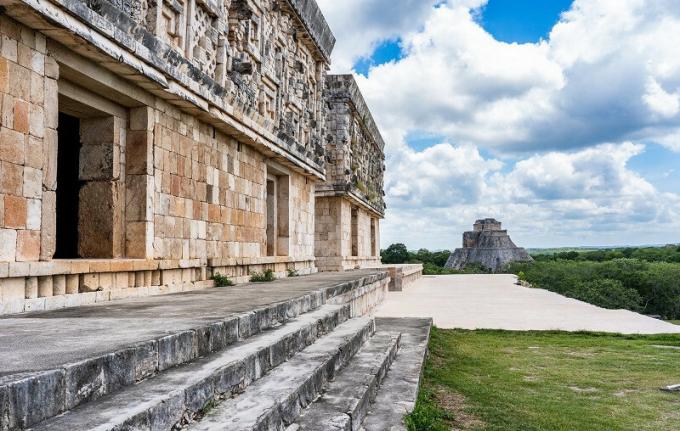The 23 auxiliary sciences of History (explained and classified)
History is the discipline that is responsible for the study of past events. In it, not only the human being is studied, but also how living beings lived in the past, the formation of the Earth, writing and other topics.
This discipline is very extensive, touching practically any aspect that makes up the Universe insofar as everything is subject to change and be part of a historical event.
For all this, we can find many auxiliary sciences of history, disciplines that expand the knowledge of this great science and that, in turn, depend on it as we will discover below.
- Related article: "History of social psychology: stages of development and main authors"
The auxiliary sciences of History: characteristics and areas of study
We can define as auxiliary sciences or auxiliary disciplines those branches of knowledge that, without going into full or fully engage in that study area that they accompany, are linked in one way or another with it, assisting you and contributing to the expansion of your knowledge
. In the case of History, most of its sciences and auxiliary disciplines have to do with fields specific that touch in one way or another the passage of time and the study of events historical.There are many disciplines whose object of study contributes to that of History, which is nothing more than the study of events and facts that belong to the past. Linguistics, archeology, geography, numismatics, and economics are disciplines that, when they cross paths of History, give rise to branches such as the history of linguistics, the history of archeology, the history of economy…
Let's look at some of the most important auxiliary sciences in History.
1. Archeology
Officially, Archeology is the study of the ancient remains of human societies that have already disappeared and that has the objective of reconstructing the life of these ancestral peoples.
Very associated with paleontology, this discipline interprets how people lived in the past, which is why it is a science whose existence would be impossible without History and that, in turn, gives support in the form of archaeological evidence to the theoretical formulations that historians make about how people lived in the last.
Archaeologists use many things to extract information from the past: books, art forms, ruins, tools, tombs, human bones and even literature are elements that reveal how people lived in ancient times, what were their customs and how their civilization was organized politically, culturally and religiously.

- You may be interested in: "Cognitive archeology: what is it and what does it research?"
2. Geography
Historical events take place in places, in countries, regions and cities, in order to understand them in greater depth, we cannot separate them from the geographical context in which they are situated. For this reason, Geography is a fundamental auxiliary science for History, considered in fact its more direct sister. The development of History, both human and natural, is conditioned to the place where it is established.
- Related article: "The 12 auxiliary sciences of Geography"
3. Mapping
Cartography can be considered as a branch of Geography. Is interested in the methods of spatial representation of the planet, that is, the elaboration of maps and atlases.
It collaborates with History giving rise to the History of Cartography, a mixed discipline that tries to understand the historical evolution of the human being from the way in how it represented the world throughout the centuries, using ingenuity, imagination and perception to establish what the territorial and geographic limits of the Land.
4. Stratigraphy
Stratigraphy is a discipline related to Geology whose knowledge is of great importance for History. It is the science whose object of study focuses on observe how sedimentary, igneous and metamorphic stones form layers in the earth's crust, allowing us to establish when certain events occurred important in Natural History. Relying on Archeology, Stratigraphy allows to recreate geographical conditions, climatic and geological events millions of years ago.
5. Numismatics
Considered by some as the auxiliary science of the oldest History, Numismatics is in charge of analyzing the medals, coins and bills of a certain historical period, also being applied in the study of what type of monetary system used cultures or extinct civilizations.

- You may be interested in: "Origins of the coin: its 3 stages of evolution in history"
6. Epigraphy
Epigraphy is an auxiliary discipline of History whose purpose is know and interpret ancient inscriptions made on materials such as clay, granite, stones or the walls of caves and temples.
Its main function is to identify and transmit the knowledge that these texts contain, written in languages and writing systems that nowadays no longer have natural speakers. In Epigraphy images, symbols, hieroglyphs are studied and it is linked to other sciences such as palaeography, archeology or numismatics.
7. Right
History and Law produce the branch of the historical study of the laws and legal systems by which societies have been governed. Since ancient times, human beings have tried to put order in societies by dispensing justice in one way or another, laws that are a reflection of how a certain society conceptualizes something that it interprets as a crime and how it should be penalized.
A classic example is Roman Law, considered of vital importance when it comes to understanding how we administer justice in today's Western world.
- Related article: "Legal Psychology: the point of union between Psychology and Law"
8. Linguistics
History is considered to have started when the first written texts appeared. Thanks to the appearance of writing, it was possible to leave a written record of the worldview and thought of the people of bygone times, people who previously could only pass on knowledge, legends and myths through orality.
Throughout all of history, Languages have been changing not only in the way they are written, but also in how they were pronounced and even in their unity. Although it is often the case that the records are incomplete, recovering the way the women spoke people of the past also allows us to reconstruct the circumstances by which they lived and the thought of the epoch.
9. Chronology
The Timeline focuses on establish the facts chronologically, that is, placing them orderly in time.
This auxiliary science of history is fundamental to determine with exactitude the historical periods, the dates of events relevant, the dating of the sources, the context in which the documents were written and other aspects related to the documentation weather.
10. Demography
Demography, closely related to Geography and Sociology, is responsible for determining the growth and development of populations statistically.
For this, data are provided on how the population of a particular country, region or locality increases, remains or decreases, data obtained from starting from the birth, mortality, morbidity, migration and immigration indices, among other variables that may have great historical value.
- You may be interested in: "Thomas Malthus: biography of this political economy researcher"
11. Ethnology
Ethnology is strongly linked to Anthropology. He is in charge of classifying, describing and finding out the ethnic groups, how they have been established and what customs they possess.
This discipline is fundamental for History, since through it you can know the entire journey or the biography of ethnic groups, clans or families that have significantly influenced their environment and the legacy they represent for the community with which they are related.
12. Genealogy
Genealogy studies the lines of ancestry of families, especially that of the most important lineages in a society or country, such as royal houses or characters illustrious, although it can also be applied to know where we come from, finding out who our ancestors were, regardless of whether we are members of a family important or not.
Genealogy has great importance for History since it is through this discipline that it is possible to study dynasties, bloodlines, kings and queens, clans and families of high birth.
13. Paleography
Paleography deals with the critical and systematic study of ancient writings. It is part of its objective to preserve, decipher, interpret and date the texts written in any medium and from past cultures..
Given its nature, Paleography is associated with linguistics, papyrology, library science, and archeology, among others. This auxiliary science of History is fundamental for the study of literature, thought and ideas transmitted in cultures of the past.
- Related article: "The 6 stages of Prehistory"
14. Sigillography
Sigilography study the meaning of old stamps used in documents, letters and official documents throughout history.
This branch has the added objective of verifying its legitimacy, taking into account the circumstances historical, linguistic conditions and the importance of events at the time.
15. Bibliography
References to books and any other text are essential in any field of knowledge, which is why it could be said that the Bibliography It is the auxiliary discipline of practically all the sciences, being especially valued when it comes to recreating history.
Study the process by which it is responsible for publishing and storing books, both in physical and digital form, in addition to study how to make the query and retrieval process of a certain source as agile and easy possible.
16. Ecology
Ecology studies the relationships between organisms and their environment. When This science is approached as the interaction of man with his environment, his biological relationship also acquires a historical nuance, evidence of this fact in the importance and impact that human activity has had on the environment.
Although as an auxiliary science of History it is relatively recent, the reality is that the interactions among living beings in their ecosystems is something that dates from the appearance of life on the face of the Land. Since life exists on Earth, living beings have interacted with it, leaving a mark in the form of different remains (fossils, strata, organic molecules ...).
Thanks to this discipline, we can locate in time the existence of a species or even an ethnic group based on its biological footprint.
- You may be interested in: "The 6 types of ecosystems: the different habitats that we find on Earth"
17. Art
The study of art is a completely autonomous field of knowledge, focusing its interest in the various forms of manifestation that artistic representations have in human society and that aims to answer the everlasting question: What is art?
Nevertheless, when it is united to History, it gives rise to a new branch: the History of Art. This is in charge of studying how the evolution of art has occurred throughout History and how reflected his time, exposing the worldview shared by both artists and the average citizen of your time.
18. Paleontology
Paleontology is the science that studies the skeletal and fossil remains of all forms of life that inhabited the Earth in times past, having the purpose of understanding how they lived and answering the eternal enigma of where life comes from on the planet.
This discipline is very close to history, since it investigates what the times before the emergence of the human being, giving historians the opportunity to think through history before the History.
19. Economy
Economics is the social science that studies the ways in which humans transform nature for their benefit, that is, how it converts raw materials from the environment into goods or offers services to satisfy its needs.
Its connection with history opens a whole branch of study, the History of Economics, which delves into the changes that society has given in economic terms from the emergence of the first settlements to the present.
20. Heraldry
Heraldry systematically analyzes and describes the figures and artistic representations that appear on the coats of arms, frequent in aristocratic families in times past. These same shields are also used as identifiers of cities, regions and nations, having their meaning and representing the defense of certain values.
21. Diplomat
Diplomatic (not to be confused with Diplomacy) is the discipline that studies documents that have been produced throughout history, concentrating on the internal and external qualities of the text to get an interpretation and estimate its authenticity, without taking too much account of who the author was. In Diplomatic, factors such as language, writing, the way it has been written, the format in which it is presented and other aspects are taken into account.
22. Philosophy
Called the mother of all sciences, the Philosophy it has a great weight in the study of History. The reason for this is because it deals with thought itself, with how the ideological formation of civilizations has been and what has been considered ethical and moral throughout the centuries.
This discipline has also addressed aspects such as deduction, induction, logic and dialectics, being the foundation for the development of the modern scientific method, fundamental for any discipline that calls itself same science.
23. Historiography
Historiography is the meta-history, that is, the History of History. It is a discipline that investigates the way in which the official (written) history of nations and sides is constructed. winners, in addition to observing the way in which it was preserved in documents or in some written text of any nature.


